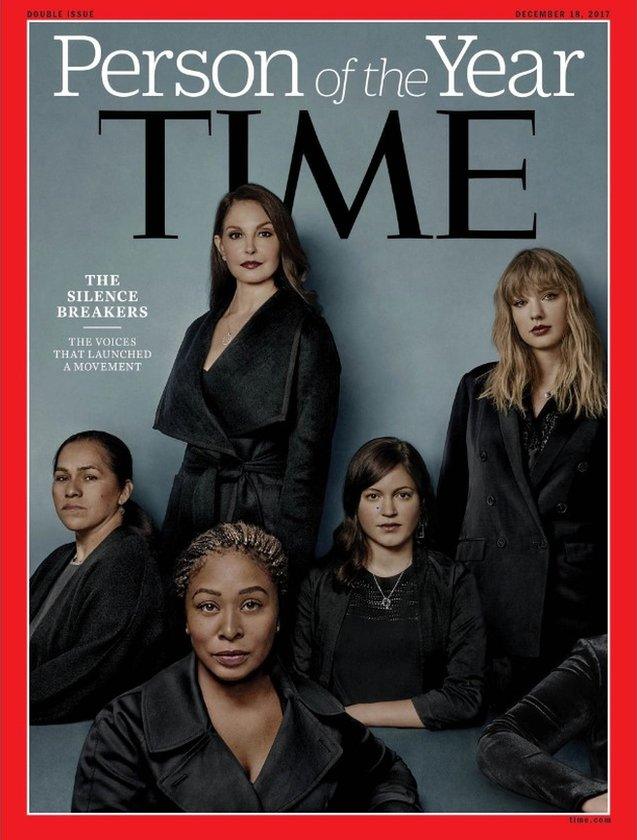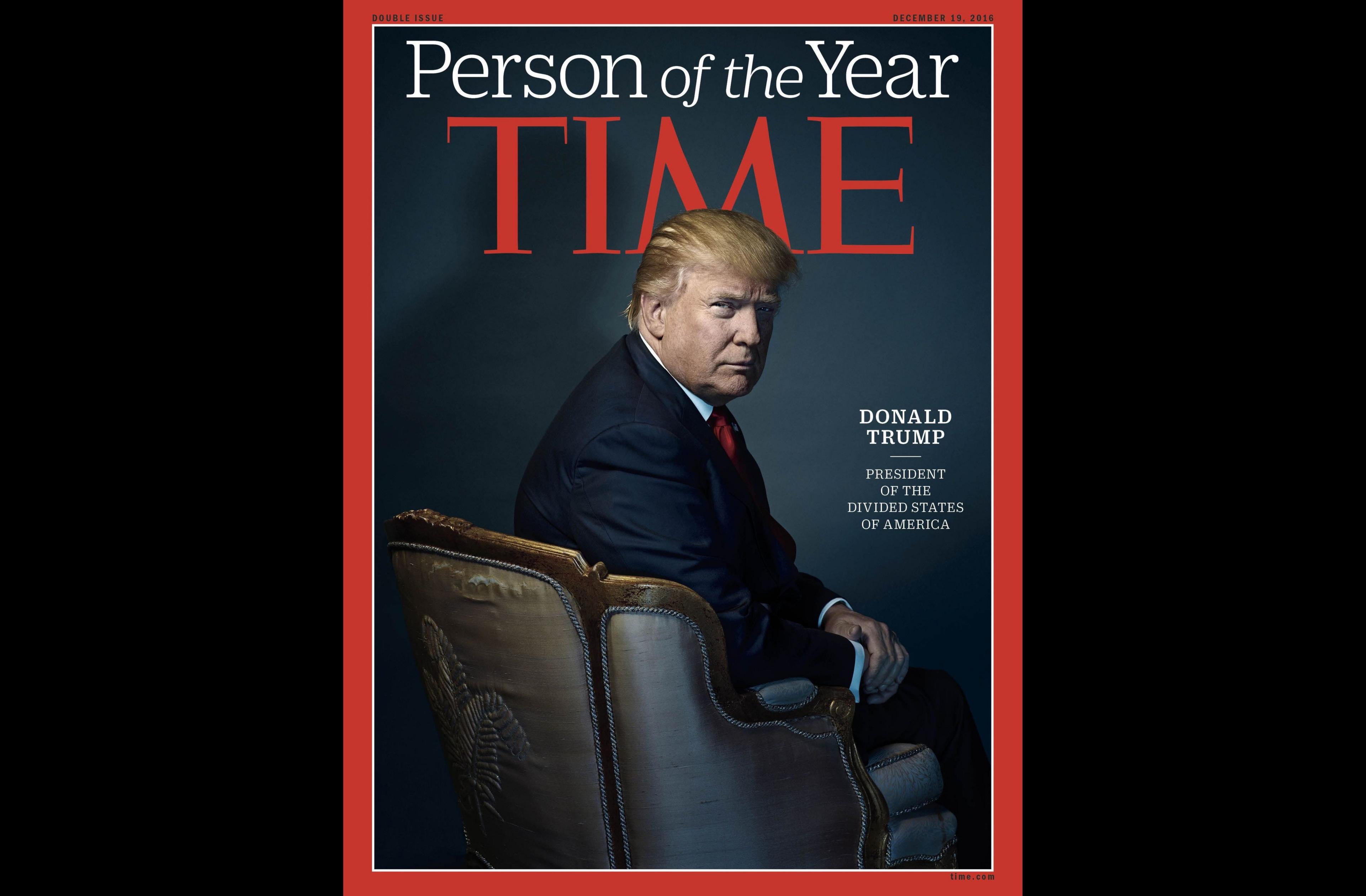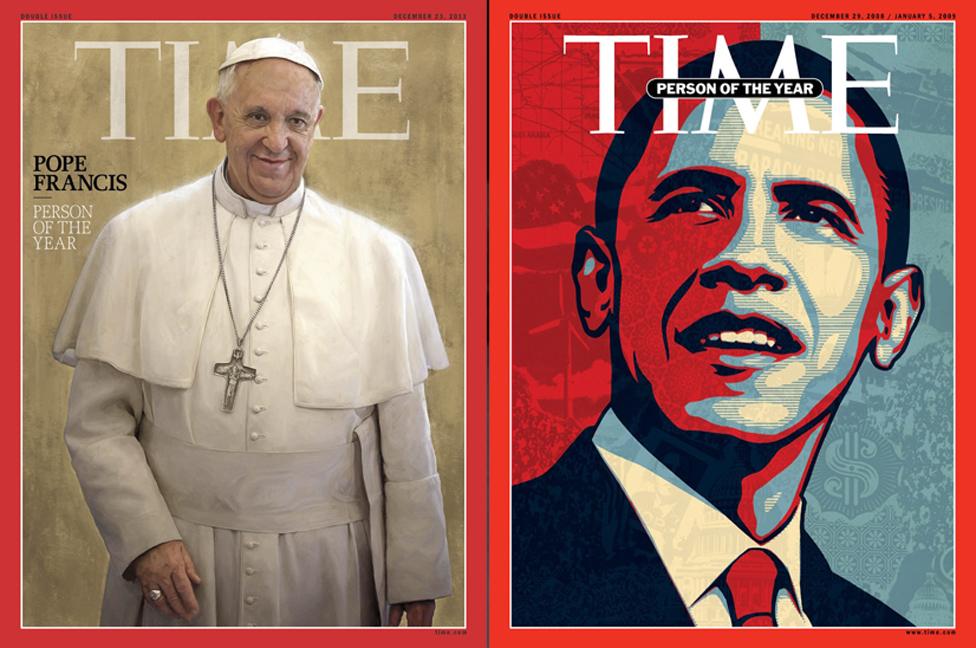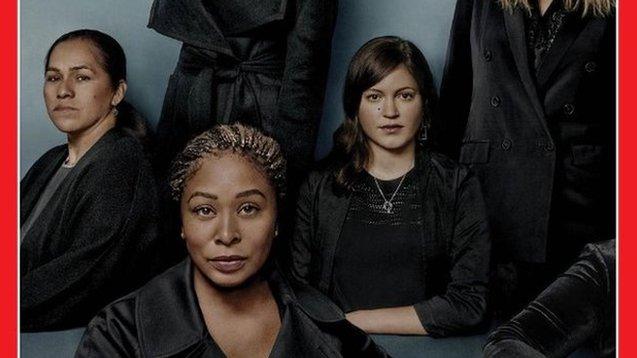Person of the Year: Time magazine explains mystery arm
- Published

Clockwise from top: Ashley Judd, Taylor Swift, Susan Fowler, Adama Iwu and Isabel Pascual
The faces of five women who have spoken out about sexual harassment appear on Time magazine's Person of the Year front cover - along with a mystery right arm. But whose is it?
If you simply glanced at the front cover of the latest Time magazine you may have missed it - an apparently rogue right arm poking into shot.
The faces of five women - including singer Taylor Swift and actor Ashley Judd - feature on the magazine's 2017 Person of the Year cover.
The quintet represent the "the Silence Breakers" - "the thousands of people across the world who have come forward with their experiences of sexual harassment and assault" this year, the magazine says.
However, in the bottom right-hand corner of the cover is the arm of an anonymous woman, with the remainder of her body deliberately cropped out of shot.
Helpfully, the magazine has now explained who the arm belongs to and why it's there.
Allow X content?
This article contains content provided by X. We ask for your permission before anything is loaded, as they may be using cookies and other technologies. You may want to read X’s cookie policy, external and privacy policy, external before accepting. To view this content choose ‘accept and continue’.
"It belongs to an anonymous young hospital worker from Texas," the magazine says in an editorial, external.
She is a sexual harassment victim, who "fears that disclosing her identity would negatively impact her family".
"She is faceless on the cover and remains nameless inside Time's red borders, but her appearance is an act of solidarity, representing all those who are not yet able to come forward and reveal their identities," Time says.
The woman told the magazine she could not stop wondering if she could have prevented the incident.
"I thought, 'what just happened? Why didn't I react?' I kept thinking, 'did I do something, did I say something, did I look a certain way to make him think that was OK?'"
Allow X content?
This article contains content provided by X. We ask for your permission before anything is loaded, as they may be using cookies and other technologies. You may want to read X’s cookie policy, external and privacy policy, external before accepting. To view this content choose ‘accept and continue’.
Allow X content?
This article contains content provided by X. We ask for your permission before anything is loaded, as they may be using cookies and other technologies. You may want to read X’s cookie policy, external and privacy policy, external before accepting. To view this content choose ‘accept and continue’.
Allow X content?
This article contains content provided by X. We ask for your permission before anything is loaded, as they may be using cookies and other technologies. You may want to read X’s cookie policy, external and privacy policy, external before accepting. To view this content choose ‘accept and continue’.
The magazine's award, external comes after a flurry of allegations were made against Hollywood producer Harvey Weinstein and the #MeToo hashtag went viral around the world, as women shared their harassment experiences online.
Hollywood actor Ashley Judd was one of the first women to speak out against Weinstein.
Allegations were made against him in the New York Times, external.
Pop star Taylor Swift, who won a civil case against an ex-DJ who she said had grabbed her bottom, also appears on the cover.
The other women on the front cover include Adama Iwu, a 40-year-old corporate lobbyist in Sacramento, and Susan Fowler, 26, a former Uber engineer who made allegations of sexual harassment at the company.
The fifth women was Isabel Pascual, a 42-year-old strawberry picker from Mexico, who was stalked. Time says she asked to use a pseudonym to protect her family.
The magazine's editor-in-chief Edward Felsenthal told US TV network NBC that this year's winners had helped to usher in "the fastest-moving social change we've seen in decades".

Previous winners

The Time Person of the Year award first began in 1927 as "Man of the Year".
It recognises the person who "for better or for worse" has done the most to influence the events of the year.
The first winner was Charles Lindbergh, the first person to fly a plane solo non-stop across the Atlantic.
US President Donald Trump won the award last year, and he was named as runner-up for the title this year.

Pope Francis was Person of the Year in 2013, the year after Barack Obama won
Other past winners have included Mahatma Gandhi, Adolf Hitler, Queen Elizabeth II and Facebook co-founder Mark Zuckerberg.
While the vast majority of people selected have been individuals, it is not the first time a group has been chosen.
In 2014, "Ebola fighters" were recognised, while in 2011 "The Protester" acknowledged the significance of the so-called Arab Spring.
In 2006, the Person of the Year was simply "You". The magazine's front page featured a mirror cover design, reflecting the importance of user-generated internet content.
- Published6 December 2017

- Published1 December 2017
- Published15 August 2017

- Published9 October 2017

- Published25 November 2017
